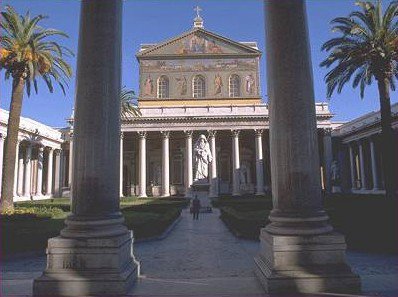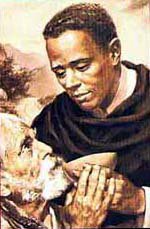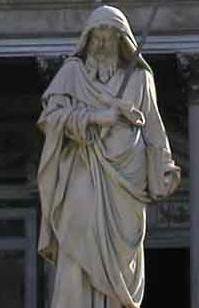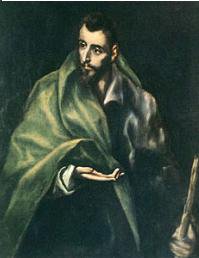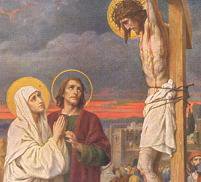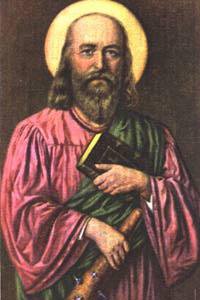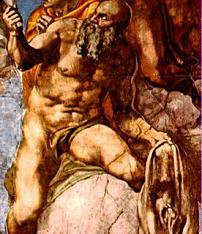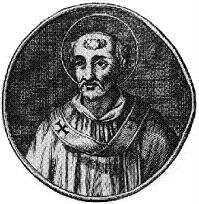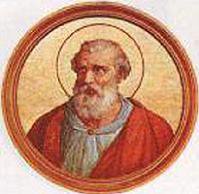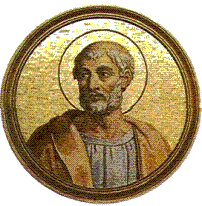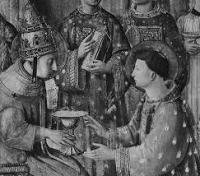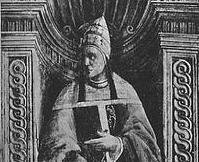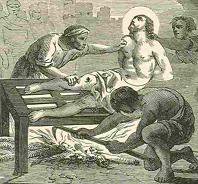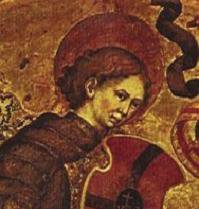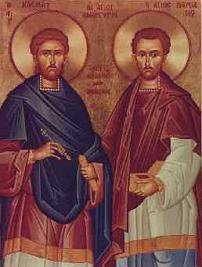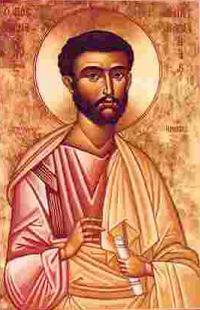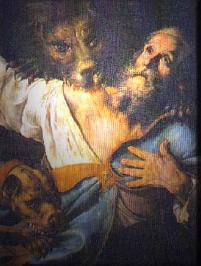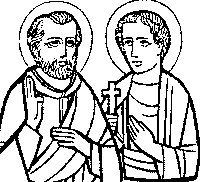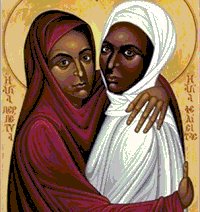Why do you let us wander, O LORD?
It is time because our lives may not be going well right now, as an economic tsunami continues to circle the globe.
It is time because it is the first Sunday of Advent is the beginning of the Church’s liturgical calendar.
It is time because it is the season when we await the celebration of Christ’s coming at Christmas and the season we especially look ahead for Christ’s coming at the end of the world (as He Himself warns us in today’s Gospel – Mark 13:33-37):
Be watchful! Be alert!
You do not know when the time will come.
It is like a man traveling abroad.
He leaves home and places his servants in charge,
each with his own work,
and orders the gatekeeper to be on the watch.
Watch, therefore;
you do not know when the Lord of the house is coming,
whether in the evening, or at midnight,
or at cockcrow, or in the morning.
May he not come suddenly and find you sleeping.
What I say to you, I say to all: ‘Watch!’
It is at a time such this the present that many of us share the lament of the prophet Isaiah in today’s first reading (Isaiah 63:16b-17, 19b; 64:2-7):
Why do you let us wander, O LORD, from your ways,
and harden our hearts so that we fear you not?
Return for the sake of your servants,
the tribes of your heritage.
Oh, that you would rend the heavens and come down,
with the mountains quaking before you,
while you wrought awesome deeds we could not hope for,
such as they had not heard of from of old.
No ear has ever heard,
no eye ever seen,
any God but you
doing such deeds for those who wait for him.
Would that you might meet us doing right,
that we were mindful of you in our ways!
Behold, you are angry, and we are sinful;
all of us have become like unclean people,
all our good deeds are like polluted rags;
we have all withered like leaves,
and our guilt carries us away like the wind.
There is none who calls upon your name,
who rouses himself to cling to you;
for you have hidden your face from us
and have delivered us up to our guilt.
Yet there is also hope, for we are in the hand of an all-powerful yet loving God.
Yet, O LORD, you are our father;
we are the clay and you the potter:
we are all the work of your hands.
It is at this time and forever that we need to let ourselves be God’s clay.
It is at this time and forever that we need to let ourselves be guided along God’s true path.
It is at this time and forever that we need to let ourselves be restored and filled by the grace of His Son, our Lord and Savior Jesus Christ, by which grace...
He will keep you firm to the end,
irreproachable on the day of our Lord Jesus Christ.
God is faithful,
and by him you were called to fellowship with his Son,
Jesus Christ our Lord.
 A Penitent Blogger
A Penitent Blogger





 Four great Fathers of the Church – St. Ambrose, St. Augustine, St. Athanasius, and St. John Chrysostom – each extend a single finger to hold a majestic chair aloft; on the back of the chair is an image of Christ entrusting the keys of the Kingdom of Heaven to St. Peter; inside the chair are the venerated remnants of an ancient chair said to have been used by St. Peter himself; atop the chair two cherubs hold a papal tiara; and above it all is the glory of the Holy Spirit.
Four great Fathers of the Church – St. Ambrose, St. Augustine, St. Athanasius, and St. John Chrysostom – each extend a single finger to hold a majestic chair aloft; on the back of the chair is an image of Christ entrusting the keys of the Kingdom of Heaven to St. Peter; inside the chair are the venerated remnants of an ancient chair said to have been used by St. Peter himself; atop the chair two cherubs hold a papal tiara; and above it all is the glory of the Holy Spirit.